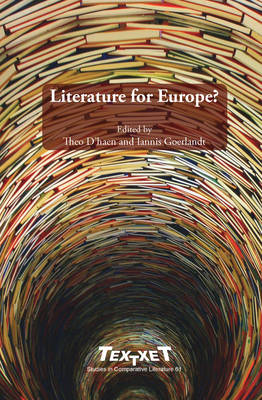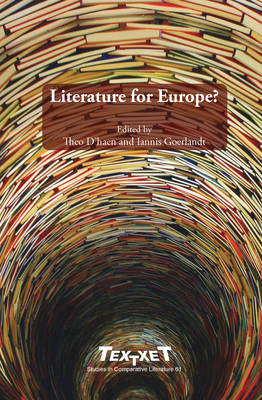
- Retrait en 2 heures
- Assortiment impressionnant
- Paiement sécurisé
- Toujours un magasin près de chez vous
- Retrait gratuit dans votre magasin Club
- 7.000.0000 titres dans notre catalogue
- Payer en toute sécurité
- Toujours un magasin près de chez vous
Literature for Europe?
219,45 €
+ 219 points
Description
In Literature for Europe? leading scholars from around Europe reflect on the role played by literature, and by the study of literature, in the constant re-negotiation and re-construction of cultural identities in Europe implied by the accession to the European Union, in the early years of the twenty-first century, of fifteen new member states, with the accession of a number of Balkan states impending, and Turkey waiting in the wings, while at the same time transatlantic relations of the EU to the USA are hotly debated, in politics as in culture, China and India awake as economic giants, and globalization is upon us. At the same time, two of the earliest signatories to the treaties eventually leading to the European Union rejected a proposal for a European Constitution, and linguistic, religious, and ethnic dividing lines show even in some of Europe's oldest nation states. How do literary texts, genres, and forms, thinking about them and teaching them, respond to and shape ongoing processes of European self-understanding in our era of globalization? The volume seeks to answer these questions by charting key developments in a number of fields crucial to the emergence of a European common literary "space" literature and cultural value systems, literature and cultural memory, literary history, translation, the impact of the new media and the information age on matters of literature and identity, and the impact of the postcolonial. Literature for Europe? is a thought-provoking tour d'horizon of cutting-edge developments in the relationship between literary studies and "the matter of Europe," and suggesting an exciting agenda for literary studies in Europe. It will be of interest to everyone working in European studies and/or European literature.
Spécifications
Parties prenantes
- Editeur:
Contenu
- Nombre de pages :
- 444
- Langue:
- Anglais
- Collection :
- Tome:
- n° 61
Caractéristiques
- EAN:
- 9789042027169
- Date de parution :
- 01-01-09
- Format:
- Livre relié
- Format numérique:
- Genaaid
- Dimensions :
- 155 mm x 234 mm
- Poids :
- 789 g

Seulement chez Librairie Club
+ 219 points sur votre carte client de Librairie Club
Les avis
Nous publions uniquement les avis qui respectent les conditions requises. Consultez nos conditions pour les avis.





